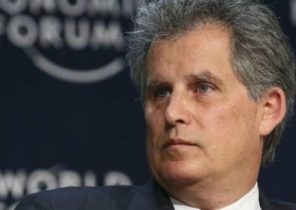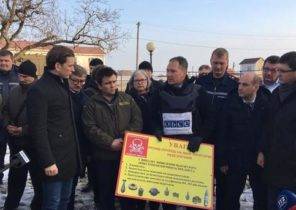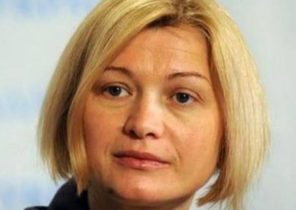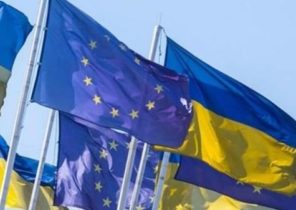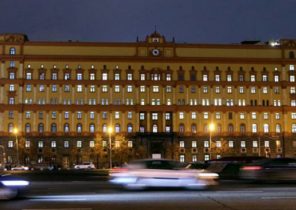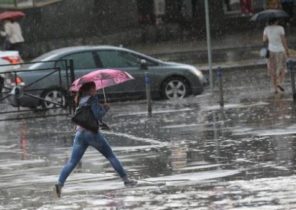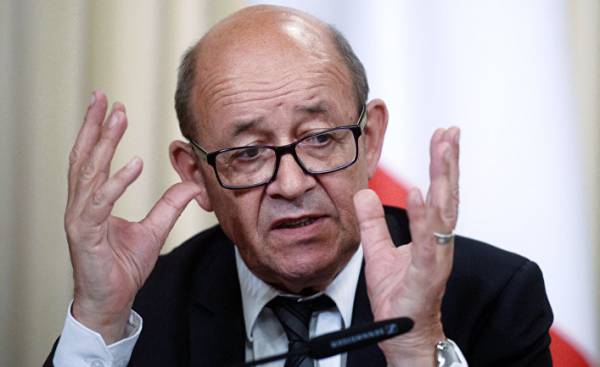
Visited Moscow and Washington, the Minister of European and foreign Affairs said the formation of points of convergence, which should help to end the war in Syria. Whatever it was, he found it impossible to find a solution to the conflict over Bashar al-Assad.
Held under the former President the post of defense Minister Jean-Yves Le Drian (Jean-Yves Le Drian) continues to view combating terrorism as a priority. In the first interview since taking office, the Minister of European and foreign Affairs, talks to Le Monde about the challenges facing it.
Le Monde: Your diplomatic course will be a continuation of the last President, or are you going to go in the other direction?
Jean-Yves Le Drian: I am against sudden changes. I serve an effective and pragmatic diplomacy, as the President of the Republic. This is my “brand”. In international terms we seek to establish strong and purposeful France in three main areas.
First and foremost is the safety and security of our citizens face threatening our country of terrorism, which is rooted in the unfolding in our immediate environment crises. In addition, protection applies to the question of climate change. Further, in the economy we need purposeful France, which have the power to defend their interests and Express themselves in new markets. France must become more attractive in economic terms the task of diplomacy is the use of the opportunities that will open initiated by the President reforms to improve competitiveness. Finally, a strong and purposeful France should be influential. This is in terms of performance and culture, protection of our values. All this, of course, is connected with the rethinking of Europe.
— Priority named “Europe that protects”. How can we build a European defence with 27 countries that have so different interests and strategic views?
Europeans are realizing that they need to be able to ensure its security. This was manifested as at the NATO summit in Brussels and at the recent European Council meeting. There was a real qualitative leap towards a common defence with the formation of a European defense Fund of 500 million Euro (the first such case), the adoption of the preparatory action, that is the joint research work in the field of defence, and the General financing of the deployment of tactical groups. All this is significant progress, proper implementation of which we need to ensure, together with the Minister of defence.
— Anyway, we have no Germany no General rules of engagement of forces or comparable armed forces…
— It is not about the formation of a European army, and the confirmation of our readiness to protect our security. Each member States has its own history and traditions regarding the rules of use of force. We are taking the necessary steps to ensure at least a minimum of collective action.
When I last visited Gao in Mali, the Minister of defence, flew in the German combat helicopter. Five years ago this would have been unthinkable. After the terrorist attacks of November 13 2015 the Europeans decided to apply article 42-7 of the Lisbon Treaty, which implies the involvement of their forces with the French. It was an important moment in the awareness of hazards with which all of us have to deal with. Now things are starting to take concrete shape with these agreements.
Washington claims that the Syrian regime ready to use chemical weapons. This is a “red line” for the President of France, who was talking about possible strikes from Paris, even alone. Is it really so?
— If the use of chemical weapons is documented, and we are confident that they can accurately be called responsible, then you can begin to act. The President’s position on this issue was very clear. In addition, it speaks of another deliberate breach of the agreement in 2013 on the elimination of Syria’s chemical Arsenal, which was signed under the aegis of Russia.
— The President talked about the shift in French diplomacy, repeating your words: “IG (banned in Russia as a terrorist organization — approx.ed.) — our enemy, Assad is the enemy of the Syrian people.” That you convinced him?
Is his own perception of the situation. We doubly realistic. The realism is that we do not put the departure of Bashar al-Assad a precondition for negotiations. Furthermore, realism is a doubt that could be a solution to the conflict. It’s hard to imagine how millions of people who fled the country or were expelled from it, can go back, if nothing changes.
— And what do your Russian partners?
— You heard that in Russia claimed that Bashar Assad — the future of Syria?
— Bashar al-Assad, an ally in the fight against terrorism?
Personally, I never saw anything in confirmation of this opinion.
— The war with ISIS in Syria and Iraq drawing to win?
— All have progressed. Mosul, the capital of the self-proclaimed Caliphate, was liberated by the Iraqi army. The offensive is supported by the coalition forces to the Syrian capital of Raqqa movement allows stronger to squeeze the grip. Thus, this struggle is bearing fruit, despite the risk of deviation and dispersion of jihadist militants across the region of the Euphrates.
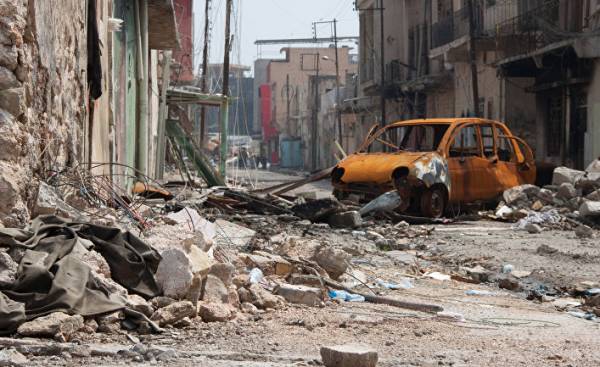 © RIA Novosti, Rafael Daminov | go to fotomasterskie building in Mosul. March 2017
© RIA Novosti, Rafael Daminov | go to fotomasterskie building in Mosul. March 2017
At the same time, negotiations on a political settlement of the conflict, which claimed over six years, more than 360 thousand lives and created millions of refugees, can not move. Our security will be fully ensured only in the case (not counting defeats IG), if we put an end to reigning in Syria, chaos. Steps should be taken to move the process forward.
There are a number of principles that we offer for the resumption of political and diplomatic process on Syria. The first is the fight against all manifestations of terrorism. The second categorical ban on the use and production of chemical weapons. The third is distribution in Syria humanitarian aid to all who need it. The fourth is a political decision covering all Syrian forces and with the support of the UN, especially permanent members of the security Council and countries in the region.
On these foundations we need to build the formation of zones of de-escalation, for which an agreement was reached in Astana, to use all opportunities for dialogue and to start the transition process with the participation of all who endorse these principles.
— Could France participate in the process?
We can work with anyone who supports the relatively simple principles that were announced by the President of the Republic during President Putin’s visit to Versailles. I handed it over to my colleague Sergey Lavrov, at the request of the President. I hold exactly the same course with all our relevant partners on Syria.
— France has always supported dialogue with Russia, but did not achieve any results. Why now the situation will change?
— I can’t go into details, but I think that at the moment there is a window of opportunity. Unending Syrian tragedy has become a disgrace for the entire international community. I think Russia, like everyone, is aware that the conflict cannot be a military solution. I think we need to move forward with the new method, which consists in forming the foundations of strong and, I believe, indisputable principles without the approval of the preliminary conditions and to build bridges between the different figures.
— What needs to be done to stabilize Libya? To support the Marshal of the Haftarot?
— I think this is a very serious question: in Libya, the growing security risk against the background of smuggling and even human trafficking. Migratory route through the Central Mediterranean has again come to the fore, and we have no government counterpart in Libya. To tolerate this state of Affairs is impossible.
In 2014 I spoke openly about the fact that ISIS can establish itself in Libya. And so it happened. The perimeter of action of the IG in Libya have been reduced, particularly around Sirte, Derna and Benghazi, but the jihadists are dispersed, and the threat remains. The Libyan state has collapsed completely, and it is necessary to renew all its structures. After the appointment I had already visited Tunisia, Algeria and Egypt and will soon travel to Italy to discuss the issue and come to agreement.
The basis should remain signed in Skhirat agreement (signed in December 2015 under the auspices of the UN, allowed to form a government of national unity Faiza Saraga — approx. ed), but its structure must change under UN auspices and under the auspices of the neighboring States. As Prime Minister Sarraj, General Haftar (disputing power in Tripoli, the government of Faiz Saraga — approx. ed.) is part of the solution. In any case, France cannot sit idly by as Libya is a priority for the President.
— In Ukraine the President has said he will need to find other solution in addition to the Minsk agreement, if those do not yield results in a few months. What does it mean?
— At the moment alternatives to the Minsk process. Today, no one, neither Russia nor Ukraine can not imagine a different forum. We therefore find it critical to moving this process forward, albeit in small steps. It is now important that both parties took the necessary steps to positive developments like the exchange of prisoners, the real withdrawal of heavy weapons from the contact line, the mutual recognition of documents, rejection of the blockade on the one hand and expropriation on the other.
It is necessary to move the process forward now, before the next meeting, “Norman Quartet” with the assistance of a neutral observer in the Person of the OSCE.
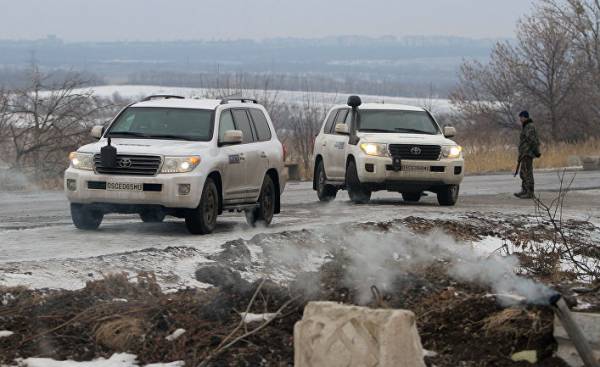 © AFP 2016, Anayolii Vocablulary OSCE in Luhansk region
© AFP 2016, Anayolii Vocablulary OSCE in Luhansk region
— Is the consensus on European sanctions against Russia?
Yes. But all participants should be reminded that sanctions may be lifted if the process goes forward. Now there is nothing similar. In Ukraine, we need acts of political will.
— Undermines your confidence the fact that Donald trump wanted to publicly assure the members of NATO ready to apply article 5 (imply an automatic solidarity in the event of an attack on one member — approx. ed.) during the may trip to Brussels?
— The implementation of article 5 is binding on US, since they signed the North Atlantic Treaty. In addition, the only time article 5 was invoked after the September 11 attacks. In Brussels trump adhered to a rather hard-line and noted two key points: he refused categorical statements about the obsolescence of NATO and demanded the Europeans to invest more in its own security that we, the French, too, seems desirable.
— Donald trump invited to the parade on 14 July on the Champs Elysees. What you expect from it?
In 2017 we have the centenary of the United States entered world war I on the side of France. I am very glad that the American troops will be able to parade through the Champs Elysees and the US President accepted the invitation of the President. This is a great way to emphasize linking two of our country’s history.
We are the allies of the United States since they gained their independence. We may have differences, as it is now on climate change, but we work closely on the most important for our countries issues such as the fight against terrorism. Hope this constructive relationship will continue in the future.
— Are there opportunities to put pressure on the United States climate?
— First of all, you need to speed up the ratification by States of the obligations that they undertook at the Paris conference. I raise this question with people around the world. Three European countries have still not ratified the agreement. In the US there is an internal pressure from the governors, mayors and heads of enterprises who said they would adhere to the terms of a climate agreement, while we must convince the President of the trump. Finally, France will work to achieve new progress in this key for the future of our planet.
— If to judge on trump’s speech in Riyadh, he has taken a very aggressive stance on Iran, calling it a source of destabilization and terrorism. France adheres to the same opinion?
— We have requirements for Iran. The first is a rigorous and thorough performance of obligations under the non-proliferation of nuclear weapons. Yet here no complaints. The second concerns our anxiety about tests of ballistic missiles in Iran. This is the most difficult moments in our relationship. As for the rest, Iran — a great country that deserves respect, but must in exchange to behave constructively in the regional environment: Tehran should fully respect the territorial integrity and sovereignty of its neighbors. With regard to terrorism, it must be fought everywhere, regardless of its origin.
— France has developed a close relationship with Qatar and Saudi Arabia and the United Arab Emirates. What is the cause of a serious crisis between these States?
— This region is of strategic importance for France, and we have formed close partnerships with a number of countries. We even have a defence agreement with Kuwait, UAE and Qatar. We believe that this crisis affects all countries of the Persian Gulf. They are interested in, to finish him, and that our position is very clear.
First of all, you need to combat all forms of support of terrorism that is within the scope of responsibility of the Gulf countries, both in collective and individual basis. Further, the resolution of the crisis must be carried out in the framework of the cooperation Council of Persian Gulf States, but not by external interventions. In this respect we support the mediation efforts of the Emir of Kuwait. Finally, we believe that the Gulf countries should go the way of easing the tension. The split plays into their hands.
On Sunday in Bamako will be officially launched the work of the anti-terrorist group G5 “Sahel”. Anyway, the security Council refused to take on any commitments for financing it. Was it a problem?
— I am very pleased to see the formation of this joint group. We have always said that the security of the region should ensure that Africans themselves. Don’t underestimate this step. Unanimously adopted by the security Council resolution was necessary to legitimize this group and facilitate European funding. On support from the UN said the Secretary-General’s report, which will be presented in October to the security Council under the chairmanship of France.
— Should this group be a substitute for the UN mission in Mali, or “Dune”?
— At the moment G5 “Sahel” includes one battalion from each country, while still an insufficient level of equipment. Need to strengthen the group. It is primarily intended to ensure the security of borders, particularly in areas where the terrorist groups. It is engaged in the fight against terrorism. Facilitation is a priority for the French operation “Dune”.
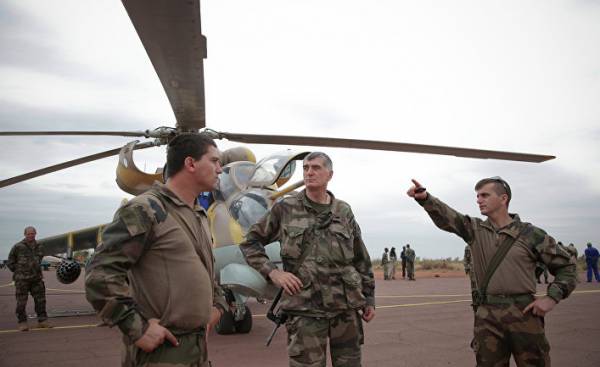 © RIA Novosti, Valery Melnikov | go to photobackpack military helicopter at the airbase of the air force in the Malian town of Sévaré
© RIA Novosti, Valery Melnikov | go to photobackpack military helicopter at the airbase of the air force in the Malian town of Sévaré
— Until when it will continue?
— Until finally there will be peace.
— It can take a lot of time…
— When we started the intervention in 2013, we faced a territorial and paramilitary terrorists who have held Northern Mali and threaten the South. Now that terrorism has become opportunistic and fickle, but the threat on his part increased again after the formation of support Groups of Islam and Muslims around of Iyad AG Ghali, who was able to unite disparate groups. This resulted in an awareness of the situation in the region and made them the willingness to engage in the fight against terrorism. To counter this new type of terrorism need to be able to strike at the financing and, in particular, drug trafficking.
— In your public statements, you rarely mention the issues of development and human rights. They don’t matter much?
— On the contrary, they are extremely important. Nevertheless, I strive for efficiency, not to rant. For example, at a meeting with Egyptian President al-Sisi openly I will raise a number of topics and call the names of people whose fate is of concern to us. At the same time, my comments in the press are subject to the requirements of efficiency. As for development, it is also the key question that will become the axis of my actions. To resolve the crisis in the Sahel is impossible by military means alone.
